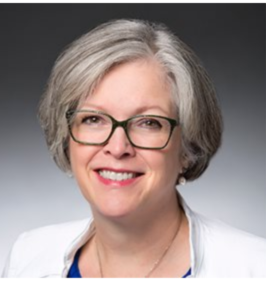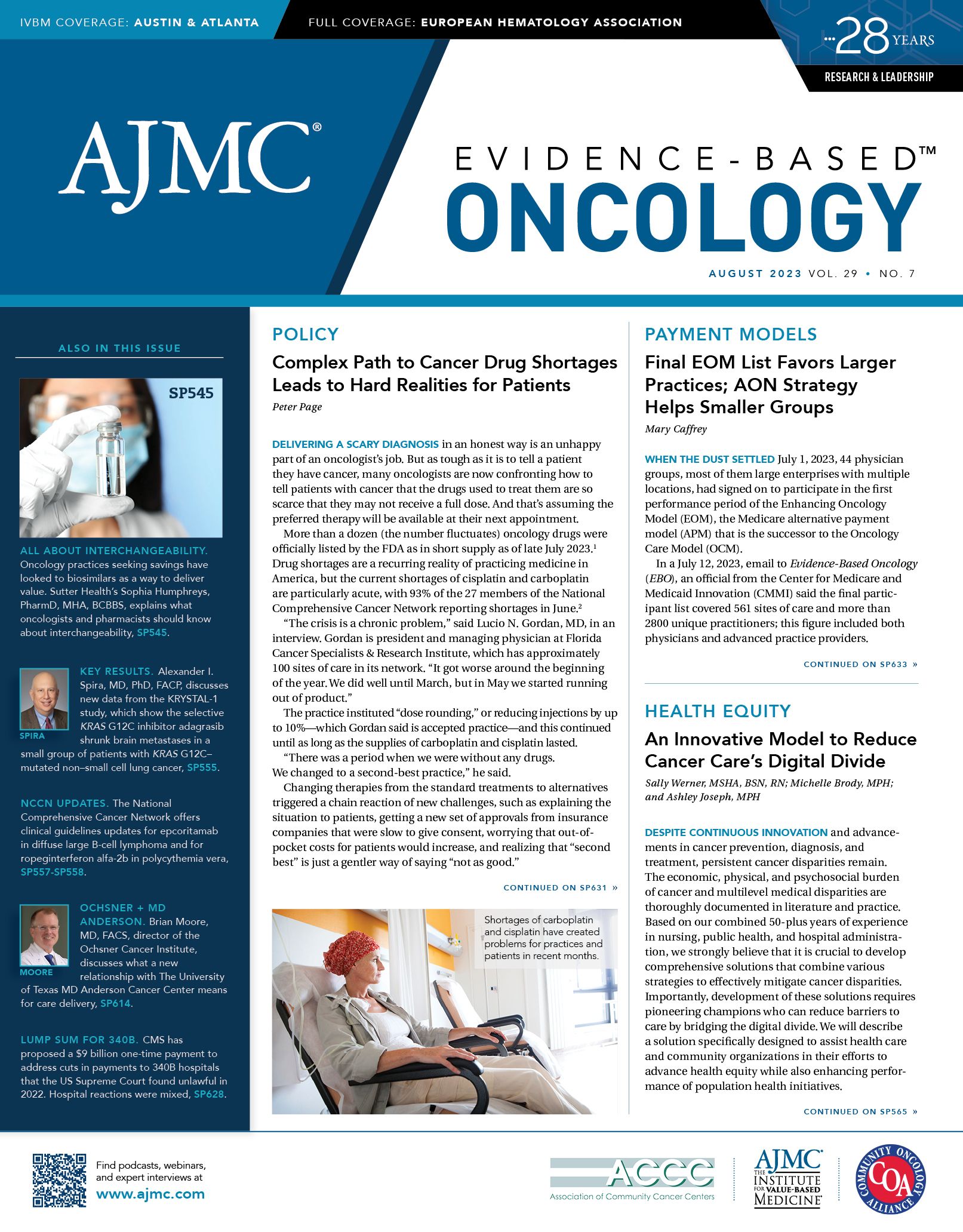- Center on Health Equity & Access
- Clinical
- Health Care Cost
- Health Care Delivery
- Insurance
- Policy
- Technology
- Value-Based Care
SPOTLIGHT: Susan M. Escudier, MD, on How Oncologists and PCPs Can Work Together to Improve Value-Based Care
Escudier

Both oncologists and primary care physicians need to work together to improve patient outcomes while also maintaining cost-effective strategies, said Susan M. Escudier, MD, FACP, vice president of value-based care and quality programs and regional medical director, Texas Oncology, in an interview with Evidence-Based Oncology (EBO).
EBO: What should cancer specialists know about working with primary care physicians?
Escudier: I think it’s very important to realize that we have overlapping goals, but our goals are not identical. The primary care organizations have to take care of all the patient’s needs. And I think that is actually quite valuable to us because they can give us assistance helping patients stay on treatment by managing their comorbidities, by managing their other medications. I think that they want to be in the loop, they want to know what’s going on, and they want to have some say, at times, in terms of where we refer the patient for things like surgeries or imaging. They may have specific value-based care contracts that require them to use certain institutions over others.
EBO: What metrics or key performance indicators measure the success of a value-based partnership between oncology specialists and primary care physicians?
Escudier: I think it’s really important that we look at patient outcomes. We have to have good patient outcomes because care can’t be cost-
effective unless it’s effective. We want to make sure that the oncologists are following national guidelines; we want to meet the quality criteria, patient satisfaction, and the cost of care. We have to show that we have a handle on the cost of care without compromising patient outcomes.
EBO: What value-based strategies or interventions can be or have been implemented to ensure seamless transitions of care between oncology specialists and primary care physicians?
Escudier: I think it’s really all about communication and being responsive. Our practice, for example, has an initiative to get new patients in very quickly so that those patients can get taken care of, and that’s going to help with our patient satisfaction scores. I think that we have to be in line with their priorities in terms of the insurance companies and the payers. So, for example, if we’re in an ACO [accountable care organization] and we send consultations or imaging outside of the ACO institutions, that may have an unfavorable outcome in terms of the primary care physician meeting their metrics, as well as ours.

Evolving Treatment Paradigms for Hematologic Malignancies in Community Oncology Settings
January 11th 2026In an interview during ASH 2025, Ontada's Ira Zackon, MD explores the role of BTK inhibitors in chronic lymphocytic leukemia treatment, highlighting real-world challenges and emerging therapy strategies.
Read More
Nathan Walcker Discusses Value-Based Oncology Care Initiatives at FCS
September 8th 2023Nathan Walcker, CEO at Florida Cancer Specialists & Research Institute (FCS), highlights some of the recent partnerships and initiatives at FCS to improve community-based oncology care from a value-based perspective.
Listen
Oncology Onward: A Conversation With Dr Debra Patt of Texas Oncology
August 1st 2023Debra Patt, MD, PhD, MBA, joins hosts Emeline Aviki, MD, MBA, and Stephen Schleicher, MD, MBA, for episode 2 of our newest podcast, "Oncology Onward: Conversations With Innovators and Changemakers in Cancer Care."
Listen
